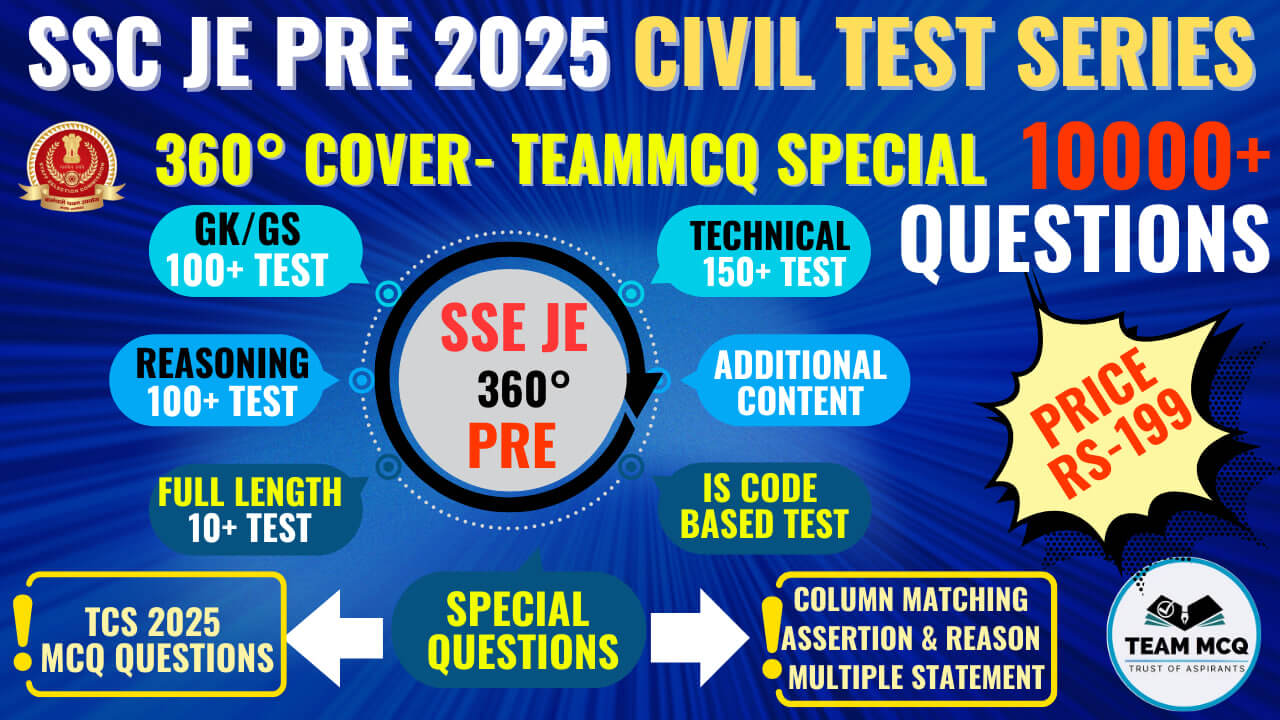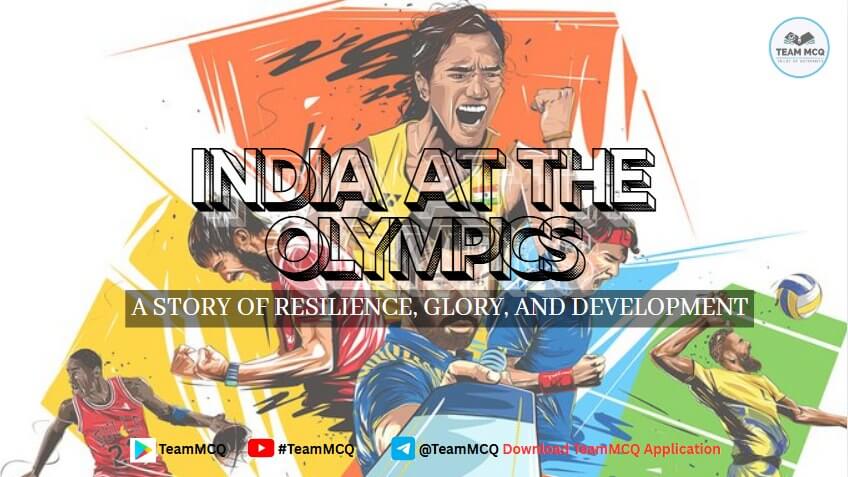India at the Olympics Games Proud Moments (1900–2024) celebrates inspiring victories, emotional milestones, and the rise of Indian athletes on the world’s biggest stage—marking a journey of pride, resilience, and sporting glory.
1900 Paris: The Legendary Birth of India’s Olympic Story
India’s Olympic story began at the 1900 Paris Olympics, where Norman Pritchard represented British India and won two silver medals in athletics—
- 200 meters and
- 200-meter hurdles
He became the first Indian-origin athlete to win Olympic medals, marking the beginning of India’s Olympic history.
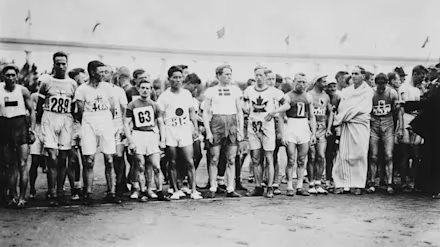
The Golden Era: Indian Hockey’s Breakthrough into Global Dominance
The period from 1928 to 1956 is widely celebrated as the golden era of India at the Olympics Games, particularly in the sport of field hockey. It was during this time that India established its reputation as a global powerhouse in the game, winning an incredible six consecutive Olympic gold medals.
The journey began at the 1928 Amsterdam Olympics, where India at the Olympics Games made a powerful statement by clinching its first-ever gold medal in hockey. Led by the legendary Dhyan Chand, India’s team displayed unmatched skill and coordination, scoring 29 goals without conceding a single one throughout the tournament. Dhyan Chand, revered as one of the greatest hockey players in history, became a national icon and a symbol of sporting excellence.
India’s dominance continued with gold medal wins at the 1932 Los Angeles, 1936 Berlin, 1948 London, 1952 Helsinki, and 1956 Melbourne Olympics. Even amid political upheaval and the trauma of partition, India remained unbeaten in Olympic hockey for nearly three decades.
This golden streak not only defined India at the Olympics Games, but also united a newly independent nation through pride in sport. It marked the beginning of India’s lasting legacy on the Olympic stage.
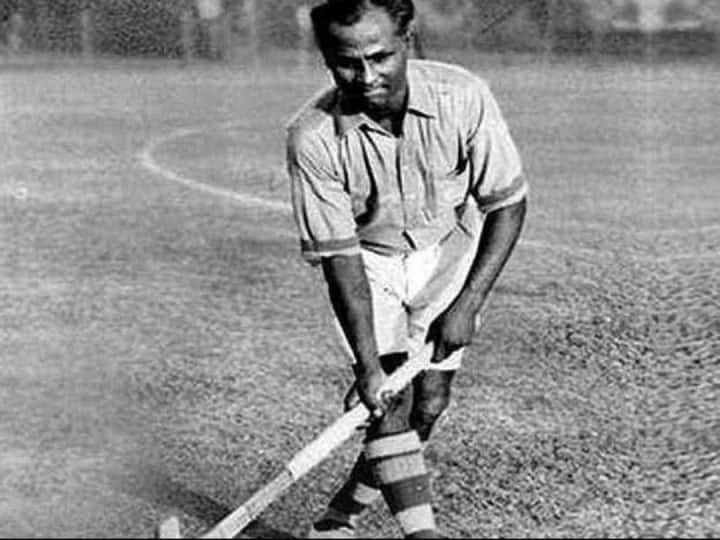

| Year | Olympics Host City | Medal | Notes |
|---|---|---|---|
| 1928 | Amsterdam | Gold | |
| 1932 | Los Angeles | Gold | |
| 1936 | Berlin | Gold | |
| 1948 | London | Gold | First gold as an independent nation |
| 1952 | Helsinki | Gold | |
| 1956 | Melbourne | Gold |
India at the Olympics Games: Post-Independence Challenges and Rising Stars
After gaining independence, India at the Olympics continued its strong performance in hockey. The country won its first Olympic gold medal as a free nation in 1948 at the London Games, defeating Great Britain. This win was a proud moment that showed the world India’s sporting spirit. Over the next few years, India’s hockey team remained a top contender, winning several gold medals and creating a strong legacy.
However, things became more difficult during the 1960s and 70s. India at the Olympics faced many challenges—there was not enough money for sports, few training centers, and little support for athletes. Many sportspeople had to work with limited resources, often training without proper equipment or coaching. This led to a drop in medals, especially in individual sports.
Even during these tough times, some athletes stood out. Milkha Singh, also known as the “Flying Sikh,” just missed a bronze medal in the 400m race at the 1960 Rome Olympics. In 1952, wrestler K.D. Jadhav made history by winning India’s first individual Olympic medal.
Though the medal count was low, this period was important. It taught lessons and sparked change. The struggles faced by these athletes became the foundation for a stronger future. India at the Olympics slowly began to improve, setting the stage for new heroes and victories in the years to come.
- Milkha Singh, famously known as The Flying Sikh, narrowly missed out on a medal in the 400m at Rome 1960, finishing fourth in a heart-wrenching race.
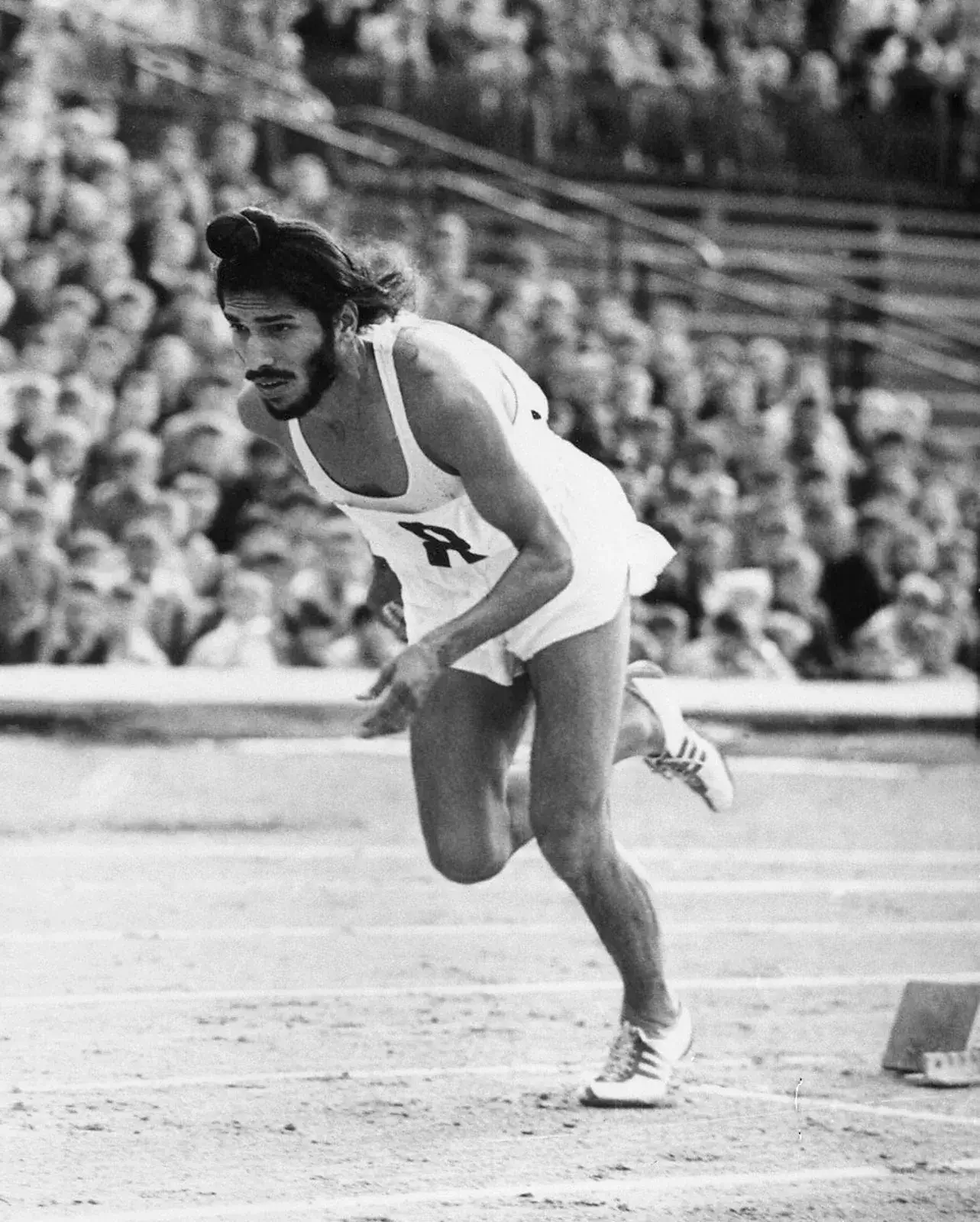
- In 2000, Karnam Malleswari became the first Indian woman to win an Olympic medal, claiming bronze in weightlifting at the Sydney Olympics.
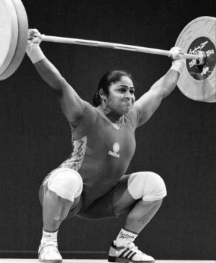
The New Millennium: Rise of Individual Excellence in India at the Olympics Games
India at the Olympics Games entered a new and transformative era in the 21st century, moving from team-based success to individual excellence. This shift became most evident at the 2008 Beijing Olympics, when Abhinav Bindra made history by winning India’s first-ever individual Olympic gold medal in the 10m air rifle shooting event. His victory was not just a personal achievement but a landmark moment for India at the Olympics, proving that Indian athletes could compete — and win — at the highest global level.
Bindra’s success became a turning point, encouraging more investment in training and athlete development. It also gave young sportspersons a belief that they too could stand on the Olympic podium. His win marked the beginning of a new chapter where India at the Olympics was no longer just about participation — it was about serious competition and ambition.
Following this, other athletes like Sushil Kumar, Mary Kom, Vijender Singh, and later, PV Sindhu and Neeraj Chopra, added to India’s Olympic medal tally in wrestling, boxing, badminton, and javelin throw. These achievements created a broader medal base across sports, making the country proud.
This period also saw better support systems, professional coaching, and increased public interest. The media coverage of Olympic events helped celebrate these athletes as national icons.
In short, the 21st century brought new hope, where India at the Olympics became a story of rising stars and remarkable progress — one medal at a time.
Other medalists in 2008 included:
- Vijender Singh (Boxing – Bronze)

- Sushil Kumar (Wrestling – Bronze)
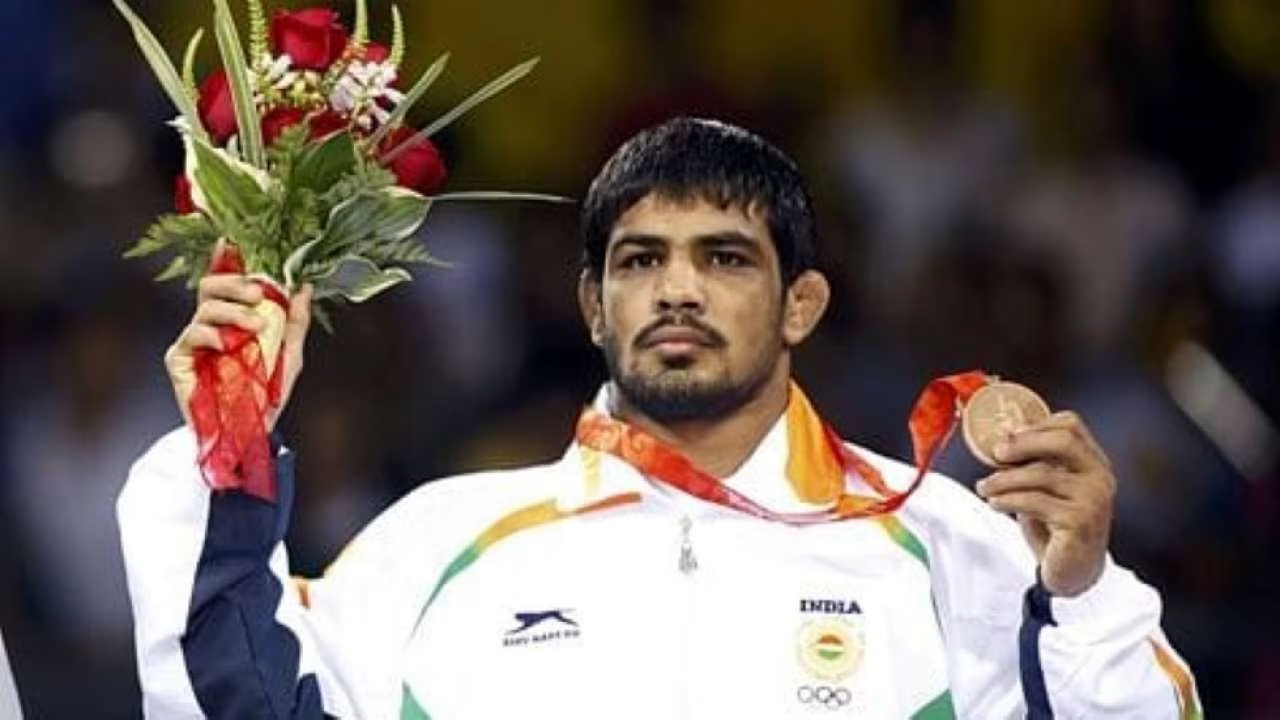
India’s breakthrough in combat sports became evident, signaling a diversification in Olympic potential. The 2012 London Olympics became India’s best performance at the time, with six medals.
| Athlete | Sport | Medal |
|---|---|---|
| Sushil Kumar | Wrestling | Silver |
| Vijay Kumar | Shooting | Silver |
| Mary Kom | Boxing | Bronze |
| Gagan Narang | Shooting | Bronze |
| Saina Nehwal | Badminton | Bronze |
| Yogeshwar Dutt | Wrestling | Bronze |
India at the Olympics Games has witnessed remarkable growth. Learn more about India’s medal tally over the years.
Tokyo 2020: India’s Record-Breaking Olympics
Despite the global uncertainty and year-long delay due to the COVID-19 pandemic, India at the Olympics Games witnessed a landmark chapter unfold at Tokyo 2020. With a historic haul of seven medals, this edition marked the best-ever performance by India at the Olympics Games, signaling a new era of sporting excellence for the nation.
The most defining moment came through Neeraj Chopra, who clinched India’s first-ever Olympic gold in track and field. His javelin throw not only made him a national hero but also etched his name in the annals of sporting history. For the first time, athletics—a domain long dominated by other nations—saw India rise to the top.
P.V. Sindhu, already an Olympic medalist from Rio 2016, added a bronze medal to her name, becoming the first Indian woman to win two individual Olympic medals. Her consistency and dominance in badminton continue to inspire young girls across India, underlining the rising power of women in sports.
Other notable achievements at Tokyo 2020 included Lovlina Borgohain’s bronze in boxing, Ravi Dahiya’s silver in wrestling, and a heart-stopping bronze from the Indian men’s hockey team, ending a 41-year-long medal drought in the sport that once brought India global acclaim. Bajrang Punia and Mirabai Chanu also added to the tally with exceptional performances in wrestling and weightlifting respectively.
Tokyo was not just about the medals; it was about the spirit of India at the Olympics Games—a country finally unlocking its true athletic potential. The athletes demonstrated exceptional resilience, having trained under challenging circumstances due to lockdowns and travel restrictions. Their success reflects improved infrastructure, better coaching, psychological support, and a newfound belief in Indian sports.
The Tokyo Olympics signaled more than a sporting victory—it reflected a nation’s coming of age on the global stage. With every medal and personal best, Indian athletes showed that the country is no longer just participating—it’s competing to win. The momentum from Tokyo continues to fuel national aspirations as India now sets its sights on future Olympic glory— read more about India’s most inspiring women athletes.
Medal Winners:
| Athlete/Team | Sport | Medal | Notes |
|---|---|---|---|
| Neeraj Chopra | Javelin Throw | Gold | India’s first athletics gold |
| Mirabai Chanu | Weightlifting | Silver | |
| Ravi Kumar Dahiya | Wrestling | Silver | |
| PV Sindhu | Badminton | Bronze | |
| Lovlina Borgohain | Boxing | Bronze | |
| Bajrang Punia | Wrestling | Bronze | |
| Men’s Hockey Team | Hockey | Bronze | Ended a 41-year medal drought |
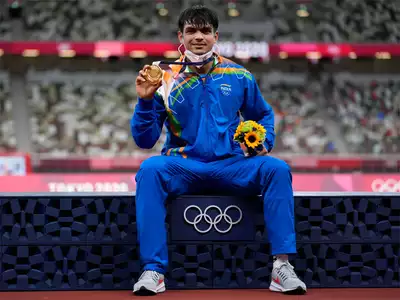
“When you put in the hard work, results will come. It’s just a matter of time, patience, and belief in yourself.”
Neeraj Chopra
Paris 2024 Olympic Games: Breaking Barriers and Setting Records
The proud journey of India at the Olympics Games is filled with iconic athletes and defining moments. In the 2024 Summer Olympics, officially known as the Games of the XXXIII Olympiad, were held in Paris, France, from July 26 to August 11, 2024. This marked Paris’s third time hosting the Summer Games, with previous occasions in 1900 and 1924.
- Participation and Sports: Approximately 10,500 athletes from 203 countries competed in 329 events across 32 sports. Notably, breaking (breakdancing) made its Olympic debut, while skateboarding, sport climbing, and surfing returned for their second appearances after debuting in Tokyo 2020.
- Venues: Competitions were held at 35 venues divided into three main areas: 13 sports in Paris, 12 sports in Île-de-France, and the remaining 10 sports in other parts of France. Iconic landmarks transformed into sporting arenas, such as beach volleyball near the Eiffel Tower and equestrian events at the Château de Versailles.
- Sustainability and Innovation: Emphasizing sustainability, 95% of the venues were existing or temporary structures powered by renewable energy. The Games achieved gender equality with 50% female athletes, reflecting a commitment to inclusivity.
- Opening Ceremony: For the first time, the opening ceremony took place outside a traditional stadium setting. Athletes paraded along the Seine River on boats, culminating at the Place du Trocadéro, offering a scenic and innovative start to the Games.
- Memorable Performances: The Games witnessed outstanding achievements, including:
- Simone Biles returning to gymnastics and securing multiple gold medals.
- Armand Duplantis of Sweden breaking his own world record in pole vault.
- Leon Marchand of France delighting the home crowd with four swimming golds.
As we head into Paris 2024, keep up with the latest updates on India’s Olympic squad.
Building India at the Olympics Games Future
The journey of India at the Olympics Games has long been a tale of potential, perseverance, and progress. Despite historical challenges—such as inadequate infrastructure, limited grassroots opportunities, and bureaucratic inefficiencies—India is now charting a more strategic and hopeful path toward Olympic excellence.
In recent years, there has been a significant shift in how the country approaches sports development. Focused initiatives like Khelo India and the Target Olympic Podium Scheme (TOPS) have been instrumental in identifying and nurturing promising young talent. These government-backed programs aim to create a strong pipeline of athletes by providing access to quality coaching, nutrition, sports science, and international exposure.
India at the Olympics Games is also benefitting from increased collaboration between the public and private sectors. Public-private partnerships have led to the establishment of modern training centers that meet global standards. These facilities, equipped with advanced equipment and expert coaching staff, are helping Indian athletes prepare better and perform at par with international competition.
Moreover, corporate sponsorship has emerged as a game-changer. Leading Indian companies are now investing in athletes through funding, mentorship, and branding opportunities. This not only relieves financial stress but also boosts the morale and visibility of our Olympians. Several top-performing athletes—like Neeraj Chopra, PV Sindhu, and Mirabai Chanu—have been beneficiaries of such support systems, demonstrating how focused investment can yield exceptional results.
Another important aspect of building the future of India at the Olympics Games is international exposure. Competing abroad at regular intervals allows athletes to adapt to high-pressure environments, understand global competition, and fine-tune their skills. With better planning and long-term athlete development programs in place, India is finally creating a roadmap for sustained success.
The vision is clear: to not only win more medals but to build a thriving sports ecosystem where talent is identified early, nurtured consistently, and celebrated nationally. As India sets its sights on upcoming Olympic Games, the dream of reaching double-digit medal tallies and claiming golds across multiple disciplines no longer feels distant—it feels achievable.
Ultimately, India at the Olympics Games reflects a rising nation’s ambition, resilience, and readiness to shine on the world’s biggest sporting stage.
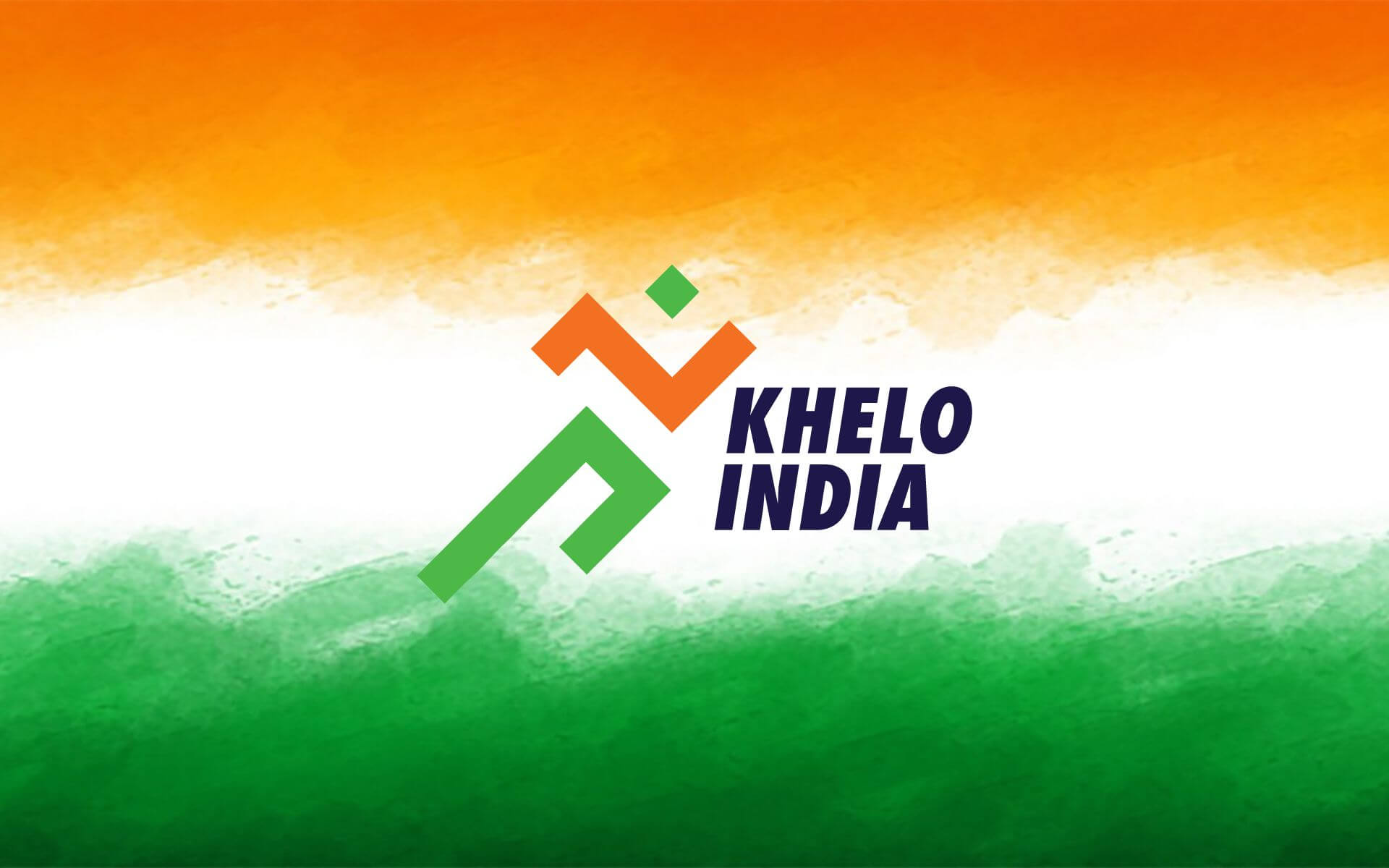
India at the Olympics: A Nation’s Golden Rise in Sports
- India at the Olympics has always been more than just a story of medals—it’s a reflection of national pride, perseverance, and progress. From winning its very first Olympic medal, a silver, in 1900 by Norman Pritchard, to Neeraj Chopra’s historic gold in javelin at the 2021 Tokyo Olympics, India’s Olympic journey has transformed dramatically over the decades.
- In the early years, India at the Olympics was dominated by team sports, especially hockey. The Indian men’s hockey team reigned supreme for years, clinching gold medals in six consecutive Olympics from 1928 to 1956. However, for a long time, success in individual events remained limited. This was due to challenges like lack of funding, inadequate facilities, and minimal government support for athletes. Despite the odds, several determined individuals managed to shine and keep the Olympic spirit alive.
- As we entered the 21st century, a major shift occurred. India at the Olympics began transitioning from team dominance to individual brilliance. Athletes like Abhinav Bindra, Saina Nehwal, PV Sindhu, Mary Kom, and Bajrang Punia began winning medals in shooting, badminton, boxing, and wrestling—sports where India had never won before. The gold medal win by Abhinav Bindra in the 2008 Beijing Olympics was a turning point, signaling a new era of possibilities.
- Today, India at the Olympics is no longer just about participation—it’s about performance. With a young, vibrant population that is increasingly passionate about sports, and with better infrastructure, coaching, and funding, the nation is positioning itself as a future Olympic powerhouse. The introduction of programs like Target Olympic Podium Scheme (TOPS) and Khelo India have provided crucial support for elite athletes and grassroots talent alike.
- The aim of reaching double-digit medal counts and clinching multiple gold medals at every Olympic Games is now within grasp. With every podium finish, India at the Olympics showcases not only athletic excellence but also the rise of a confident, competitive nation on the global stage.
- This growth is powered by the dreams of over a billion Indians—each athlete’s success story echoing the aspirations of a rising nation.
MCQ QUESTIONS WITH ANSWERS
Q1: Who was the first Indian-origin sportsperson to win Olympic medals?
Ans: Norman Pritchard won two silver medals in athletics at the 1900 Paris Olympics, marking India’s first Olympic achievement.
Q2: In which Olympics did India win its first team gold medal?
Ans: India won its first team gold in field hockey at the 1928 Amsterdam Olympics.
Q3: How many consecutive gold medals did India win in hockey between 1928 and 1956?
Ans: India won six consecutive Olympic gold medals in hockey from 1928 to 1956.
Q4: Which athlete narrowly missed an Olympic medal in the 400m race in 1960?
Ans: Milkha Singh finished fourth in the 400m final at the 1960 Rome Olympics.

Q5: Who was the first Indian woman to win an Olympic medal?
Ans: Karnam Malleswari won a bronze in weightlifting at the 2000 Sydney Olympics.
